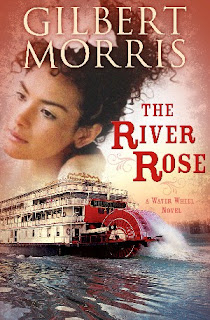My husband and I dropped into a coffee shop and while he read the newspaper, I overheard a conversation going on next to us. I didn’t mean to eavesdrop. The voice of one of the three carried across the room. Here is what I took away from this free research moment:
Author Archives: Judy Bodmer
Too Much Christian Talk?
The Montage–a way to show the passage of time
Transitions
When I started writing fiction, I had a hard time getting my characters from one place to another. This is what I wrote:
Why Use Symbols in Your Writing
Have you considered adding a symbol in your novel? Some of the best novelists (and nonfiction book authors) use them to add depth to their stories and to their characters. What exactly am I talking about? A symbol can be a living thing like a butterfly, eagle, or an old oak tree. Or it can be an inanimate object like a family home, a seashell, or a precious stone. Throughout the story the object takes on a meaning larger than itself. It adds layers of emotional meaning that otherwise you’d have to explain. And it can be useful in showing depths of a character’s personality.
Ten Ways to Begin Your Novel
How to Prepare for a Writing Conference
Marketing Advice for Authors
Help Your Friend Become a Best Selling Author
My friend Kate Lloyd has a book coming out soon, Pennsylvania Patchwork. She’s an amazing writer and I want to help promote her novel. I’m a busy writer, editor, volunteer, and grandmother. I can’t do everything I want to do, but here are 7 things I can do in the limited time I have:
1. Buy her book. I can pre-order her book through Amazon.com or Christianbooks.com, or both. Publishers notice how many people are preordering a book and this helps the author. And by buying her book new, she gets a royalty.
2. Buy her book as a gift. I already know of friends and relatives who will enjoy Kate’s novel. I plan to buy it for them as either a birthday or Christmas gift. I’ll have Kate sign her book, which makes my gift even more special.
3. Face her book out at bookstores. Whenever I stop in at my local Christian book store or Barnes & Noble, I check to see if her book (and other friends’ books) is on the shelf. Then I face her cover out, helping the next shopper notice her novel.
4. Order her book. If I can’t find her book, I ask the employees where it is. This draws their attention to her name, and title. If they don’t have it on the shelf, I will ask them to order it. I’ll also inform them she’s a local author. I’ll tell them how much I loved her last book, Leaving Lancaster, and tell them how much I’m looking forward to reading her new book. Bookstore employees can’t know all the books they carry, and this will help them find a new author they will appreciate recommending to other readers.
5. Review it. After I’ve read the book, I will leave a review on Amazon.com, BN.com, Goodreads.com, and Christianboods.com. I will be fair and honest. Five star reviews sell books. Someone said I should also “Like” her books on Amazon.com. This will help with linking her book to others similar to it. This helps other readers find her Amish fiction.
7. Talk about her book on Facebook. When Kate’s book comes out, I’ll mention it on my Facebook page. I’ll link to her Website and also to places where people can buy it. Pictures help sell, and so I’ll make sure I have the cover in my picture file. If she does giveaways, I’ll pass the word along to my friends.
None of these things take a lot of time, but they will help my friend sell her book. You can do the same for your friends and in return when your book is published they might do the same for you. Maybe you have ideas of your own. What would you add to my list? Please comment below.
The River Rose by Gilbert Morse
However, as plans are made, news comes of another heir to the Helena Rose – a tough man named Clint Hardin — and a clause in the will that says claimants of the estate must live aboard the boat. Jeanne, a Christian woman, makes it clear she won’t stay with a man who is not her husband. But both are desperate for work, so they agree to keep their distance as Clint occupies the lower deck and Jeanne takes the captain’s quarters.
Q & A with Gilbert Morris
I received a complimentary copy of this book for review from B&H Publishing Group. I was not required to write a positive review. The opinions I have expressed are my own. I am disclosing this in accordance with the Federal Trade Commission’s 16 CFR, Part 255.



